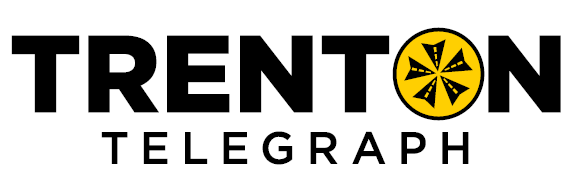The Importance of Early Breast Cancer Detection
Gabe Stark
The Trenton Telegraph
Breast cancer remains one of the most common cancers affecting women, with approximately one in eight women likely to develop the disease during their lifetime.
For the Trenton community, early detection and specialized care have become more accessible thanks to the expertise of Dr. Mitchell, one of six breast radiologists at St. Luke’s Health System. This week The Telegraph had the opportunity to interview Dr. Mitchell and get the scoop on what our community can do to prevent late stage cancer.
Dr. Mitchell and her colleagues are dedicated solely to breast imaging, having completed additional fellowship training to ensure the most accurate interpretations of mammograms and ultrasounds.
“Breast imaging is the only imaging that we interpret,” Mitchell said. “So that’s all we do, you know, on a daily basis, emphasizing the value of sub-specialized interpretation for patients at Wright Memorial Hospital.
The importance of early detection cannot be overstated.
“If breast cancer is caught early, it has nearly a 100% survival rate,” she said.
Mitchell and her team recommend that women begin annual screening mammograms at age 40. However, Mitchell noted that screening rates remain lower than ideal.
“Usually, it’s only like 60-some percent of women who are supposed to be getting screening mammograms are getting them,” she said. “So just in general, there’s always work to do, you know, in increasing our screening mammography rates.”
A concerning trend is the rise in breast cancer among younger women.
“There was a steeper rise or a steeper increase in breast cancer rates in younger women versus older women,” Mitchell said.
Referencing recent statistics. She explained that while most breast cancers are found in women over 40, aggressive cancers can develop in women under 50, and even under 40.
“A lot of younger women will tend to have more aggressive or faster-growing type cancers, unfortunately,” she said.
Family history plays a significant role in risk assessment, but it is not the only factor.
“If a woman has a mom or a sister who’s had breast cancer, then that would almost undoubtedly put them at a higher risk themselves,” Mitchell said.
She also highlighted that certain genetic mutations, such as BRCA1 and BRCA2, can dramatically increase risk, but emphasized that only 10 percent are due to a genetic mutation.
Most women diagnosed with breast cancer do not have a family history, making regular screening essential for all.
Mitchell encourages young women to have conversations about risk factors by age 25, especially if there is a family history of breast cancer or related cancers. For those at higher risk, earlier and additional screening—sometimes with breast MRI—may be recommended.
The benefits of early detection are clear when it comes to treatment.
“If we’re able to catch a cancer from just a mammogram finding, typically that’s a good thing,” she said. “Typically, that means it’s still a small size, and a lot of those patients may not need chemo. It may just be surgery and some radiation. Conversely, cancers detected because of a noticeable lump are often more advanced and may require chemotherapy, especially in younger women.”
Breast Cancer Awareness Month each October is an important reminder for women to schedule their screenings.
“We definitely see an influx in October, which is good,” she said. “That’s what we’re going for. We want to increase awareness. Women can schedule a mammogram online through St. Luke’s website, and those experiencing symptoms should contact their physician for a diagnostic mammogram.”
Mitchell’s message to Trenton women is clear:
“If you’re age 40 or above, we really encourage you to get your screening mammogram once a year,” she said. “And for young women, be aware of your family history that might increase your risk, but also be aware of yourselves, be aware of your own breast health, and if there’s ever any changes, let your doctor know. Be an advocate for yourself.”
With continued education, awareness, and access to specialized care, the outlook for women facing breast cancer in Trenton grows brighter each year.
